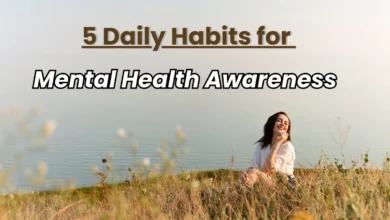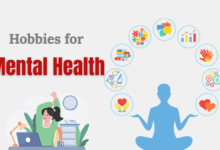Digital Detox for Mental Health: 30-Day Challenge & Benefits

Introduction
In today’s fast-paced digital world, our lives are increasingly intertwined with screens. Whether it’s scrolling through social media, replying to endless emails, or indulging in back-to-back series, excessive screen time has become the norm. But have you ever wondered how this constant digital engagement affects your mental health? Research suggests that prolonged screen exposure can lead to stress, anxiety, and even sleep disturbances. This is where a digital detox for mental health can make a difference.
A digital detox is a conscious decision to reduce screen time and reconnect with real-life experiences. By embarking on a 30-day mental health challenge, you can gradually break free from digital overload and embrace a more mindful lifestyle. This article will explore the benefits of digital detox and offer a structured plan to help you reclaim your well-being.
The Hidden Toll of Digital Overload
We live in an era where technology connects us, yet ironically, it also isolates us. Many people experience digital detox benefits such as improved focus, reduced anxiety, and better sleep when they take a break from screens. Excessive screen time has been linked to several mental health issues, including:
- Increased stress and anxiety due to information overload.
- Disrupted sleep patterns from blue light exposure.
- Reduced attention span and concentration levels.
- Decreased face-to-face social interactions, leading to loneliness.
Acknowledging these negative impacts is the first step toward making a positive change. A well-planned 30-day mental health challenge can gradually help you reduce screen dependency without feeling overwhelmed.
The Science Behind Digital Detox Benefits
Cutting back on screen time isn’t just a trend—it’s backed by science. Studies indicate that people who engage in a digital detox for mental health experience a boost in mood, cognitive function, and overall well-being. Here’s why:
- Improved Sleep: Reducing screen exposure before bedtime helps regulate melatonin production, leading to better sleep quality.
- Reduced Anxiety & Stress: Less exposure to negative news and social media comparisons contributes to emotional stability.
- Enhanced Focus & Productivity: A break from digital distractions allows the brain to function more efficiently.
- Stronger Relationships: Less screen time means more opportunities for meaningful connections with loved ones.
By incorporating small changes in daily habits, you can experience these benefits firsthand.

The 30-Day Tech Detox for Well-being
A successful 30-day mental health challenge requires gradual steps rather than an abrupt digital withdrawal. Follow this structured plan to reset your screen habits effectively.
Awareness & Reduction
- Track your daily screen time using built-in phone settings or apps.
- Set limits on social media usage (e.g., 30 minutes per day).
- Establish screen-free zones at home, such as the bedroom and dining area.
Mindful Alternatives Tech Detox for Well-being
- Replace screen time with outdoor activities like walking or cycling.
- Engage in hobbies that don’t involve screens—reading, painting, or cooking.
- Schedule face-to-face meetings instead of virtual calls where possible.
Deep Tech Detox Practices
- Introduce a “Tech-Free Day” once a week.
- Avoid screens for the first hour after waking up and the last hour before bed.
- Practice mindfulness or meditation instead of browsing social media.
Sustainable Habits
- Reevaluate your progress and adjust screen limits accordingly.
- Continue incorporating screen-free activities into your daily routine.
- Set long-term goals to maintain a balanced digital lifestyle.
By following these steps, you’ll gradually experience digital detox benefits without feeling deprived or disconnected.
Overcoming Challenges During Digital Detox
The transition away from excessive screen time isn’t always easy. Many people face withdrawal symptoms, such as restlessness or the fear of missing out (FOMO). Here’s how to tackle common obstacles:
- Dealing with Boredom: Engage in offline activities that keep your mind and body active.
- Resisting the Urge to Check Notifications: Keep your phone on silent mode or use “Do Not Disturb.”
- Managing Work Expectations: Communicate your digital detox goals with colleagues and set clear boundaries.
- Handling Social Pressure: Let friends and family know about your detox plan to gain support.
Conclusion
Taking a break from screens isn’t about disconnecting from the world—it’s about reconnecting with yourself. A well-planned digital detox for mental health can bring transformative benefits, from reduced stress to better relationships and overall well-being. By embarking on a 30-day mental health challenge, you’ll gradually develop healthier screen habits without feeling overwhelmed.
Start small, stay consistent, and embrace the positive changes a digital detox can bring. Are you ready to take the first step toward a more mindful and fulfilling life?










Looking for some action? betfest looks pretty promising. I dig their options and competitive odds. Worth taking a look. Explore here: betfest
Thankyou for helping out, superb info .